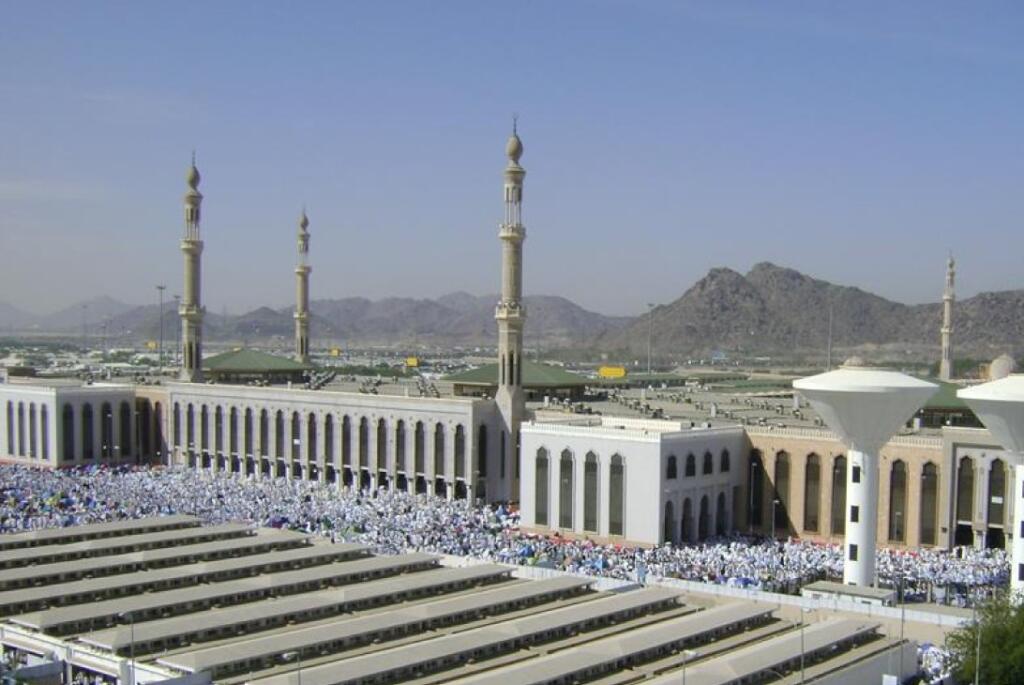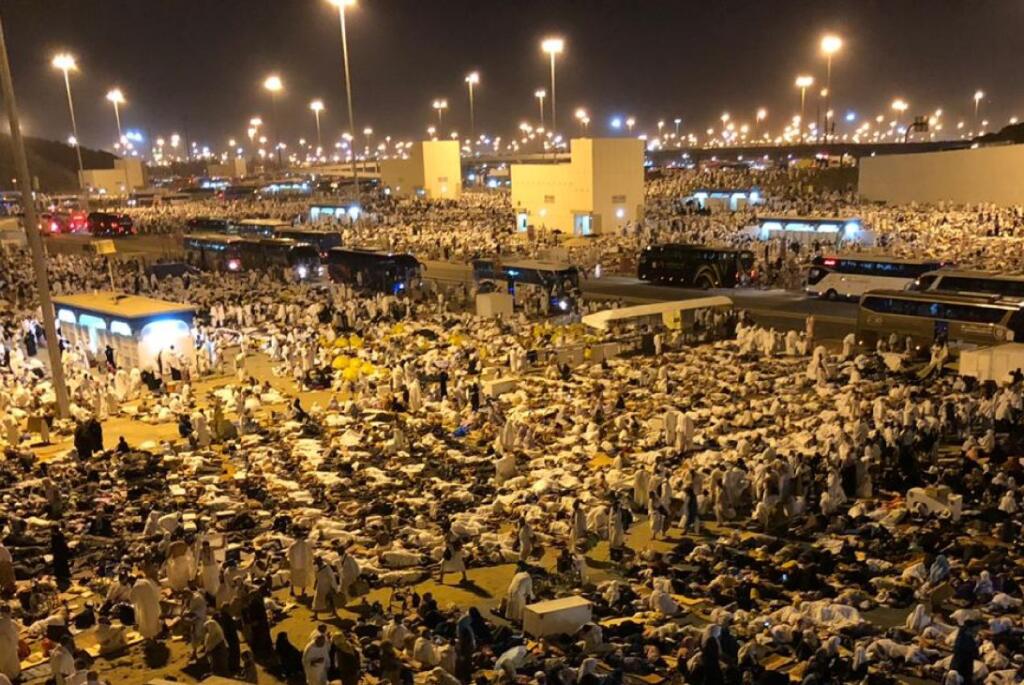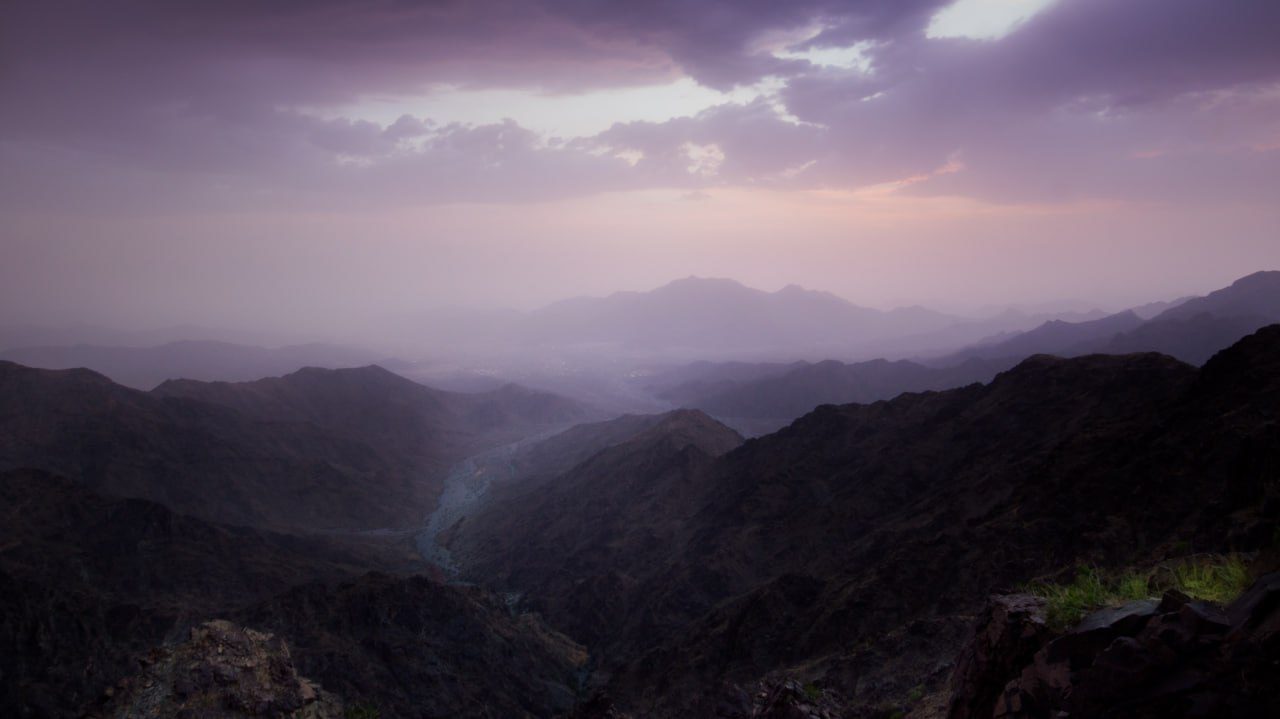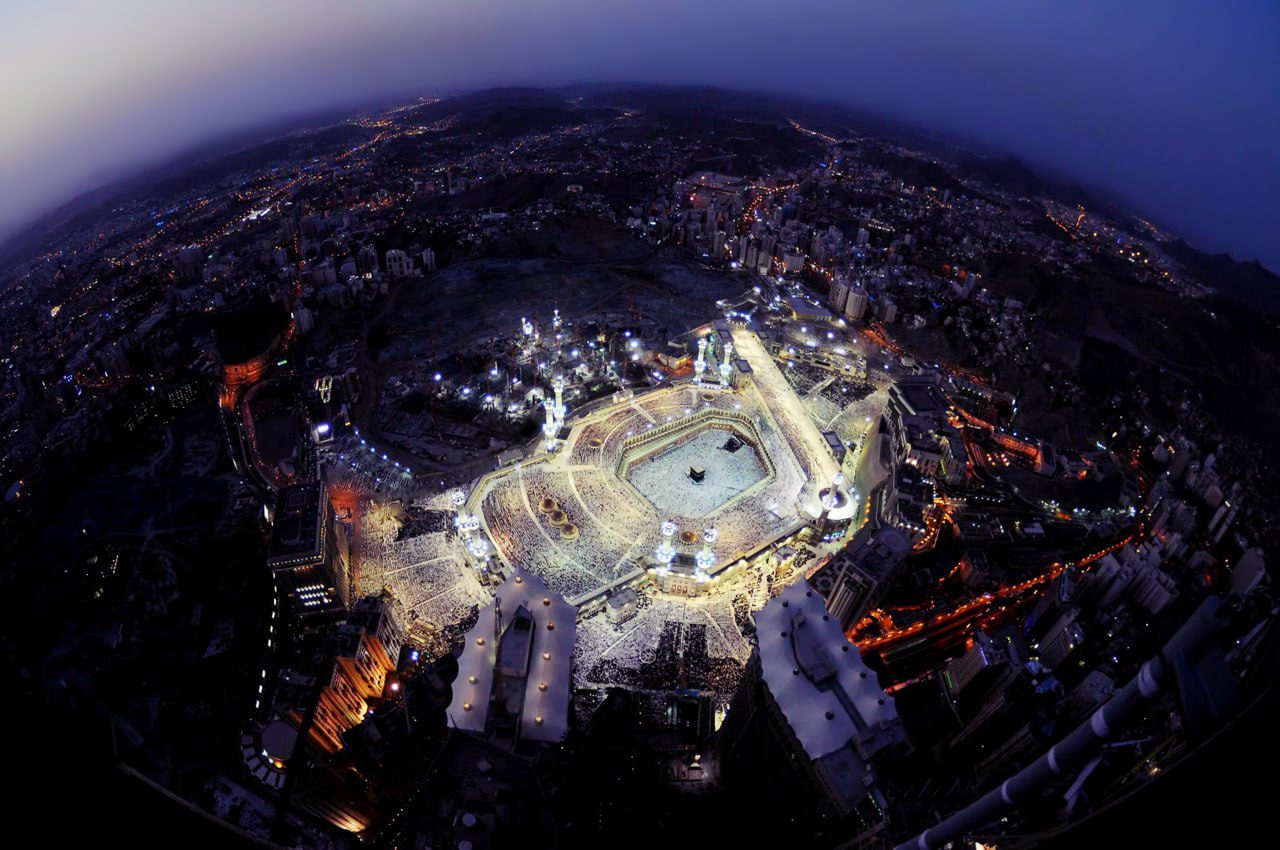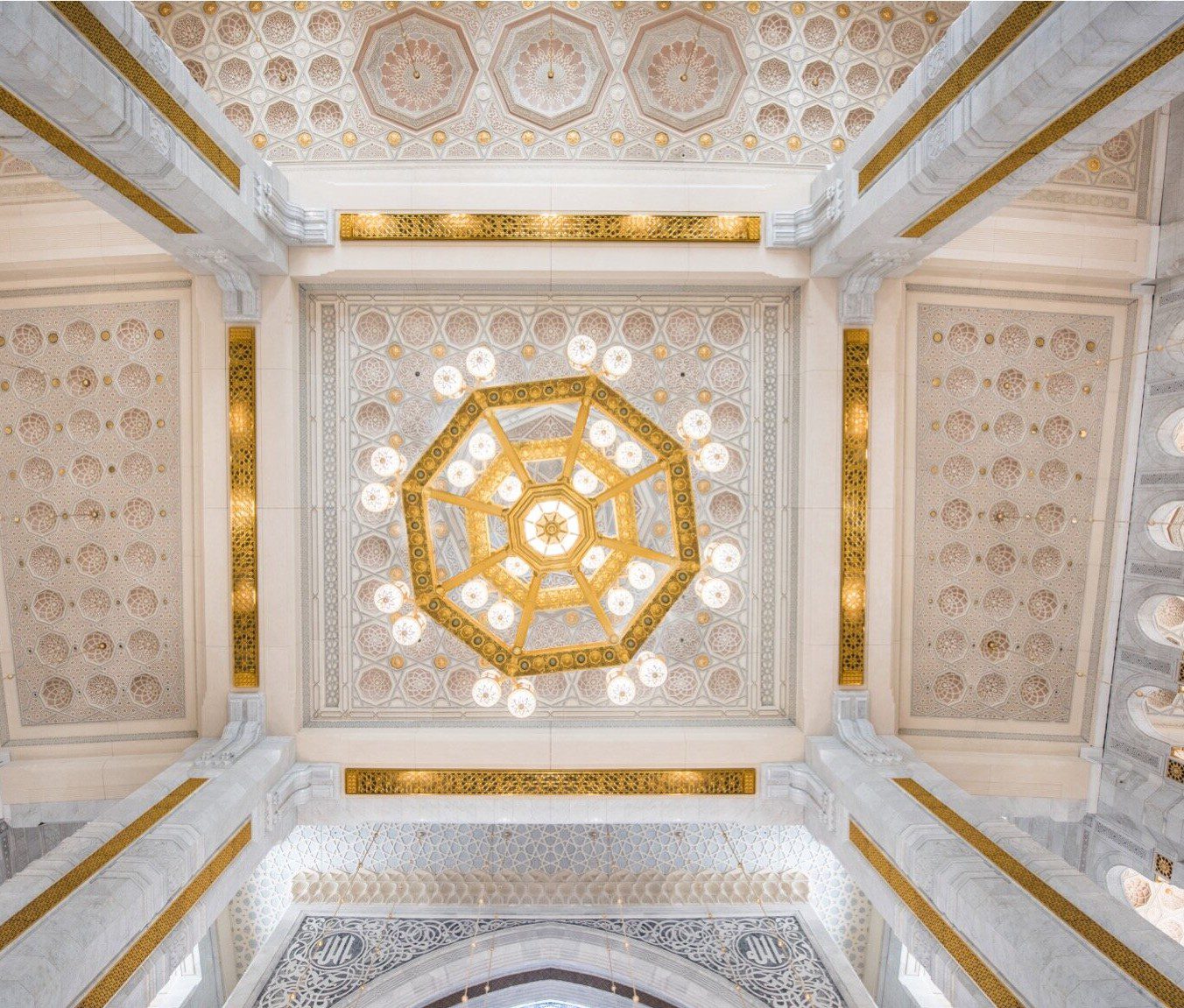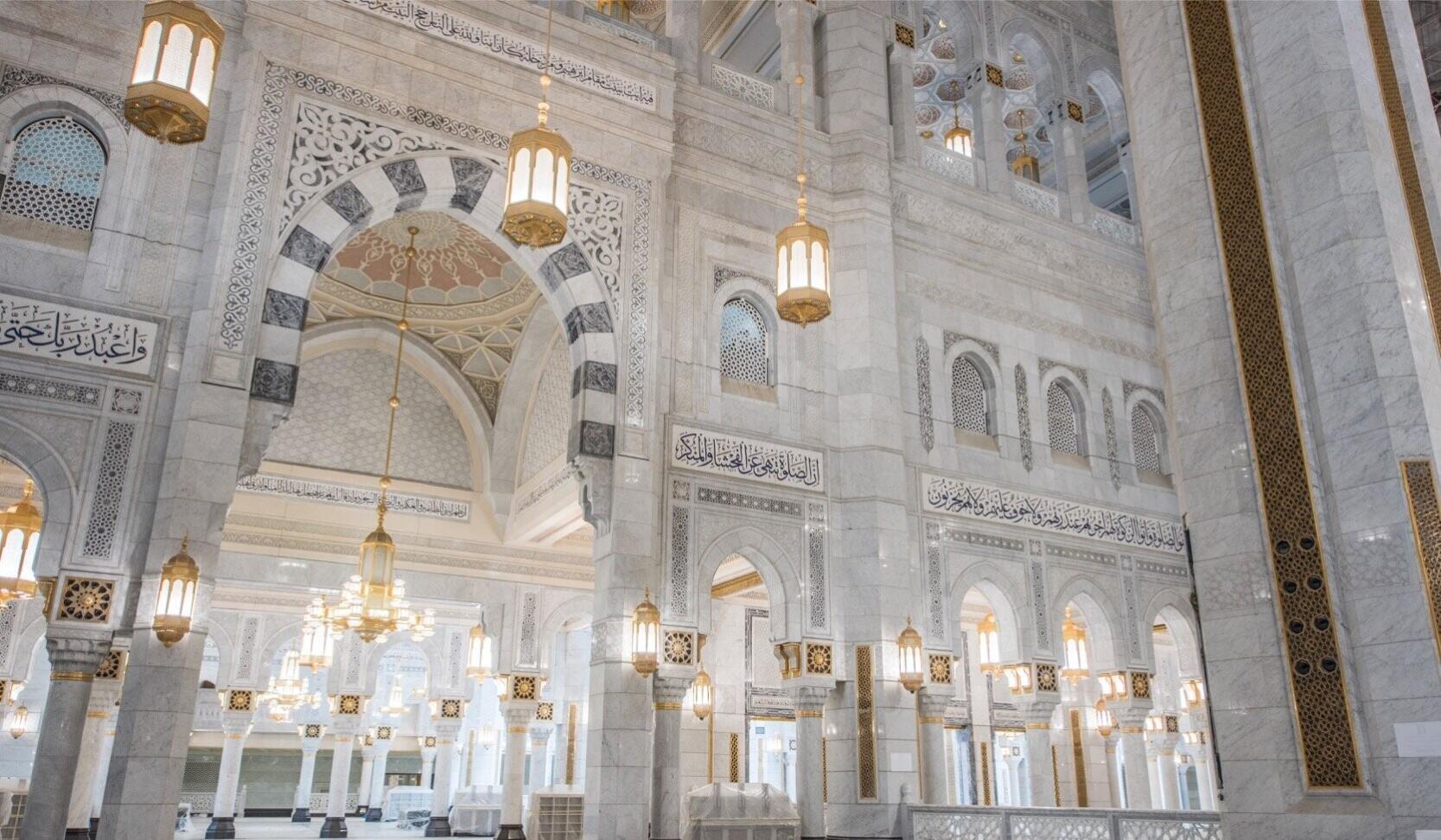Standing (wuqūf) in ʿArafah is an essential part of ḥajj; without it, your ḥajj is not valid.
If possible, go to the Mountain of Mercy. However, this is not necessary, as the Prophet ﷺ said that all of ʿArafah is ‘mawqif’ (i.e. the place of wuqūf).
Stand for as long as you can, facing the qiblah. Praise Allah ﷻ, send ṣalawāt, and make plenty of duʿā’.
The Secrets of the Day of ʿArafah
1. This is the day of duʿā’.
a. The best action on this great day is duʿā’. The Messenger of Allah ﷺ said: “The best duʿā’ is the duʿā’ of the Day of ʿArafah. The best of what I and the Prophets before me have said is:
لَا إِلٰهَ إِلَّا اللّٰهُ وَحْدَهُ لَا شَرِيْكَ لَهُ ، لَهُ الْمُلْكُ ، ولَهُ الْحَمْدُ ، وَهُوَ عَلَىٰ كُلِّ شَيْءٍ قَدِيْرٌ
There is no god worthy of worship but Allah. He is Alone and He has no partner whatsoever. To Him Alone belong all sovereignty and all praise. He is over all things All-Powerful” (Tirmidhī).
Act: Reflect on the deeper meanings of this dhikr (refer to the Dhikr&Dua app). Add it to your duʿā’ list, memorise it and keep repeating it throughout the day of ʿArafah.
b. On this day, the Prophet ﷺ started the day early, shortened his sermon and combined the prayers to devote the rest of his time to glorifying Allah and making duʿā’. Ḥajj is about strengthening your bond with Allah and spending time in intimate conversation (munājāh) with Him!
c. After the khuṭbah, he ﷺ made duʿā’ until sunset. He was so focused on making duʿā’ that even when the rein of his camel fell down, he grasped it with only one hand, and left his other hand raised towards the sky. How strong was his connection with his Lord!
Reflect: Despite being over 60 years old, undertaking a long journey from Madinah to Makkah, and being responsible for huge crowds, none of it came in the way of worshipping His Beloved!
Tip: Don’t waste these precious hours waiting in food queues, sitting around waiting for lunch, or talking to others. These few hours are not meant for eating and socialising. Stay focused. Eat light, so that you don’t feel bloated or sluggish, and instead fully focus on making duʿā’.
Act: Take out your duʿā’ list and beg Allah.
Making Duʿa on the Day of ʿArafah:
- Fill your heart with humility, repentance and submission. You have been waiting for years to make it to this great day. Allah has chosen you, out of billions of people, to witness this amazing day. The day has now arrived. What an incredible blessing! Allow these feelings to settle in your heart.
- Express your helplessness, poverty and weakness to Allah. Reflect on your sins that are weighing you down so heavily, and on the wasted hours of your life spent in disobedience to Him. Let the tears flow.
- Act like a beggar. Ibn ʿAbbās (radiy Allāhu ʿanhumā) said, “I saw the Messenger of Allah ﷺ supplicating on the Day of ʿArafah with his hands raised to his chest, like a beggar pleading for food” (Bayhaqī). This was the Prophet ﷺ whose past and future sins had been forgiven, yet he still stood for hours, begging. So what about us?
- Be certain your duʿā’ will be answered. Allah is al-Karīm, the Most Generous; His bounty and grace is immense and no sincere effort is ever wasted. Why wouldn’t your duʿā be answered when you’re surrounded by hundreds of thousands of tongues remembering Allah and hearts full of humility? Even if you’re not shown mercy because of your own deeds, you may be shown mercy because of the righteous around you.
Tip: These are the most important hours of your life. Spend as much time as you can in duʿā’. If you find it difficult to make duʿā’ for such a long duration, you can take short breaks and read from a duʿā’ book, make dhikr or recite the Qur’ān, and then come back to making more duʿā’. (For more tips on duʿā’, see ‘Hajj & Duʿā’’ article.
“I have been making duʿā’ on the Day of ʿArafah for the last 50 years, and not a year passes by except that I see them (answered) as clearly as the light of the morning.” – One of the pious predecessors
2. ʿArafah is the ultimate day of mercy and forgiveness. As the sun was about to set, the Prophet ﷺ gave the pilgrims the happy news and said to them: “O People! Jibrīl came to me just now. He conveyed the greeting of my Lord to me and said: ‘Allah has forgiven the people of ʿArafāt and Muzdalifah, and has taken over their responsibilities (He will fulfill the rights others have over them e.g. help them to repay their loans).’”
ʿUmar (raḍiy Allāhu ʿanhu) asked whether this was specific to them, to which the Prophet ﷺ replied, “It applies to you and to all who come after you until the Day of Judgement.” ʿUmar then said, “Allah’s grace is plentiful and beautiful!” (at-Targhīb wa at-Tarhīb).
ʿAbdullāh b. al-Mubārak (raḥimahullāh) approached Sufyān al-Thawrī on the evening of ʿArafah. Sufyān al-Thawrī (raḥimahullāh) was sitting on his knees and weeping bitterly. ʿAbdullāh b. al-Mubārak (raḥimahullāh) asked him: “Who is in the worst situation amongst these masses?” He replied: “The one who thinks that Allah will not forgive him.”
3. ʿArafah comes from the root word ʿa-r-f: to be aware of, to recognise. On the Day of ʿArafah, you recognise your sins and acknowledge them, and you also recognise Allah for who He is.
Act: In preparation for the Day of ʿArafah, take a moment to write down everything you know about Allah. If you’re struggling, make it a goal to learn about His Names and Attributes. Read a book, listen to a lecture series and reflect on the Qur’ān to understand who Allah is.
4. This is the day of freedom from the Hell-fire. No matter the extent of your sins, sincerely beg Allah for forgiveness and to free you from the Hell-fire.
The Prophet ﷺ said, “There is no day in which Allah sets free more slaves from Hell-fire than the Day of ʿArafah. Indeed, He draws near, and He then boasts about them to the angels and says: ‘What do these (slaves of mine) want?’” (Muslim). This day is also Shayṭān’s worst day in the year. In just a few hours, years of Shayṭān’s efforts to mislead humanity come to naught. What enrages him even more is that not only does Allah free the pilgrims from the Hell-fire, but He frees the non-pilgrims too.
Act: Sincerely seek forgiveness for your sins and ask Allah al-ʿAfuww (The Ever Pardoning) to completely wipe them off your record.
Ḥakīm b. Ḥizām (raḥimahullāh) would stand in ʿArafah with 100 camels and 100 slaves. He would then free the slaves for the sake of Allah. The people would then start crying loudly, saying: “O Allah! Your slave freed his slaves, and we too are Your slaves, so free us (from the Hellfire).”
5. Imagine the view of ʿArafah from the heavens. Imagine that Allah is boasting about you to His angels: “Indeed Allah ﷻ boasts to His angels about the people of ʿArafah on the afternoon of ʿArafah, saying: Look at My servants; they came to Me dishevelled and dusty!” (Aḥmad).
Reflect: How does it make you feel knowing you are in a gathering that Allah is boasting about to His angels? Another gathering Allah boasts about is when His servants come together to remember Him. How will you incorporate this into your life moving forward?
“It is well known that on the eve of ʿArafah, a level of īmān, mercy, light, and blessing descends upon the hearts of the pilgrims that cannot be described in words.” – Ibn Taymiyyah (raḥimahullāh)
6. Recognise the great gift of Islam. This day is also special because it was the day Allah (subḥānahū wa ta‘ālā) bestowed upon our ummah its greatest gift: He perfected the religion of Islam and completed His favour upon us.
ʿUmar b. al-Khaṭṭāb (raḍiy Allāhu ‘anhu) narrated: ‘Once a Jew said to me, “O leader of the believers! There is a verse in your (Holy) Book which you all recite; had it been revealed to us Jews, we would have taken that day (on which it was revealed) as a day of celebration.”’ ʿUmar (raḍiy Allāhu ‘anhu) asked him, “Which verse?” The Jew replied:
اَلْيَوْمَ أَكْمَلْتُ لَكُمْ دِيْنَكُمْ وَأَتْمَمْتُ عَلَيْكُمْ نِعْمَتِْى وَرَضِيْتُ لَكُمُ الْإِسْلَـٰمَ دِيْنًا
“…Today I have perfected your religion for you, completed My blessing upon you, and chosen Islam as your religion…” (5:3).
ʿUmar (raḍiy Allāhu ‘anhu) replied, “No doubt, we know the day and the place when this verse was revealed to the Prophet ﷺ. It was Friday and the Prophet ﷺ was standing at ʿArafah” (Bukhārī).
7. The Day of ʿArafah is a reminder of the hereafter:
a. Remember the Day of Judgement as you see the millions and millions of people gathering on a plane from all sorts of life, completely dishevelled, begging, pleading and crying to Allah in desperation. ʿArafah is an equaliser, just like the Day of Judgement is an equaliser: your wealth, status or power will mean nothing. Everyone will stand as slaves, answerable only to their Only Master: Allah.
b. As you see the different groups of people, with their different skin colours and languages, following their leaders to the sacred sites, reflect on the scene of the Day of Judgment. All nations will gather with their Prophets and leaders, hoping for their intercession and worried about their outcome.
c. Take a moment to look at the hundreds of thousands of people around you, all wearing clothing resembling the death shroud, reminding you of the one certainty in this life: death.
d. Feel the heat on your skin and be reminded of your desperation on the Day of Judgement. If this short exposure is difficult, then what about the Day of Judgement, when the sun will be only a mile above your head, and the Day will stretch for 50,000 years? As you stand in ʿArafah, you may find some areas with shade and others without. Let this motivate you to strive to be among the seven categories of people who will be granted shade on the Day of Judgement:
- a just ruler,
- a young person who grew up in the worship of Allah,
- one whose heart is attached to the mosques,
- two people who love each other, meet each other, and depart from each other for the sake of Allah,
- a man who is tempted by a beautiful woman of high status but he refuses, saying, ‘I fear Allah,’
- one who spends in charity discreetly to the extent that his left hand does not know what his right hand has given,
- and one who remembered Allah in private and he wept. (Bukhārī)
Reflect: How will you change your life from today to be amongst at least one of the seven categories above?
e. In the final moments before maghrib, let the stillness and the silence around you remind you of the Day of Judgement where “… all voices will be hushed before the Most Compassionate. Only whispers will be heard” (20:108).
Tip: Go out and stand under the sun, even if it’s for a short while.
8. Fill your heart with love for Allah. The Day of ʿArafah is the annual gathering of all the lovers of Allah. Fill your heart with deep love for Allah: Your Creator, Master and Provider. Think of everything He does for you: how He takes care of you, overlooks your mistakes and conceals your sins. Allah, the King of the heavens and the earth, who needs nobody, is boasting about you to His angels, saying: “Look at My servants; they came to Me dishevelled and dusty!” (Aḥmad). He appreciates your efforts and dishevelled, distressed state. Think of this and fill your heart with love, yearning and appreciation for your Most Generous Lord. Feel closeness to Him and long to meet Him.
9. The secret of ḥajj lies in the gathering of a large number of righteous people in a sacred place, at a sacred time. It occurs in a land filled with the signs of Allah, visited by the best of His creation through the ages, where His symbols are honoured, voices are raised in humble duʿā’, and souls yearn for His mercy and forgiveness. When such sincerity and longing come together, Allah’s mercy and forgiveness inevitably pours down. This is why the Prophet ﷺ said, “Shayṭān has never been seen more humiliated, defeated, despised, and enraged than on the Day of ʿArafah” (Muwaṭṭa’).
10. As the sun begins to set on ʿArafah, this is one of the most bittersweet moments you will experience during the ḥajj. In these moments, you will cry out even more desperately to Allah begging Him for mercy and forgiveness. When the sun finally sets, a sense of coolness and peace will settle over ʿArafah. This is the moment your heart will feel light and free; unburdened by the weight of sin.
Act: In this moment, open your notebook and jot down your thoughts and feelings. Don’t forget to thank Allah ﷻ for giving you the opportunity to experience the most blessed of moments in the year, in the most sacred of places, with the most amazing people. This is a gift many have never experienced.
11. Renew the covenant you may have forgotten. Long before we entered the world, we all made a covenant at ʿArafah when Allah asked us: “Am I not your Lord?”, to which we replied “Of course, we bear witness” (Aḥmad).
Reflect: It is as if Allah ﷻ brought you to ḥajj so that you would return to this very place as a reminder to feel regret for breaking your covenant and to renew it.
Act: Make a promise that you will remain faithful to what you have learned during your ḥajj, and to uphold it for the rest of your life after returning home.
Sufyān b. ʿUyaynah (raḥimahullāh) was fortunate to perform ḥajj 70 times. Each year in ʿArafah, he would longingly and lovingly plead to Allah: “O Allah! Do not let this be the last time with you (in ʿArafah)!” In the year he passed away, he did not supplicate with this duʿā’. When he was asked about this, he said: “I felt shy of Allah, the Exalted.”

